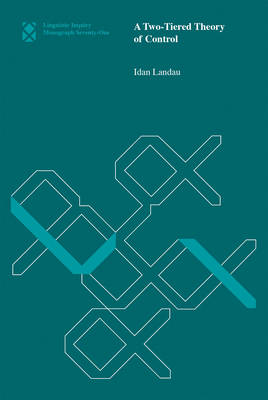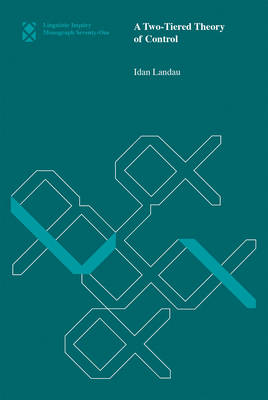
- Afhalen na 1 uur in een winkel met voorraad
- Gratis thuislevering in België vanaf € 30
- Ruim aanbod met 7 miljoen producten
- Afhalen na 1 uur in een winkel met voorraad
- Gratis thuislevering in België vanaf € 30
- Ruim aanbod met 7 miljoen producten
Omschrijving
This book revives and reinterprets a persistent intuition running through much of the classical work: that the unitary appearance of Obligatory Control into complements conceals an underlying duality of structure and mechanism. Idan Landau argues that control complements divide into two types: In attitude contexts, control is established by logophoric anchoring, while non-attitude contexts it boils down to predication. The distinction is also syntactically represented: Logophoric complements are constructed as a second tier above predicative complements.
The theory derives the obligatory de se reading of PRO as a special kind of de re attitude without ascribing any inherent feature to PRO. At the same time, it provides a principled explanation, based on feature transmission, for the agreement properties of PRO, which are stipulated on competing semantic accounts. Finally, it derives a striking universal asymmetry: the fact that agreement on the embedded verb blocks control in attitude contexts but not in non-attitude contexts.
This book is unique in being firmly grounded in both the formal semantic and the syntactic studies of control, offering an integrated view that will appeal to scholars in both areas. By bringing to bear current sophisticated grammatical analyses, it offers new insights into the classical problems of control theory.
Specificaties
Betrokkenen
- Auteur(s):
- Uitgeverij:
Inhoud
- Aantal bladzijden:
- 128
- Taal:
- Engels
- Reeks:
- Reeksnummer:
- nr. 71
Eigenschappen
- Productcode (EAN):
- 9780262527361
- Verschijningsdatum:
- 1/05/2015
- Uitvoering:
- Paperback
- Formaat:
- Trade paperback (VS)
- Afmetingen:
- 152 mm x 226 mm
- Gewicht:
- 181 g

Alleen bij Standaard Boekhandel
Beoordelingen
We publiceren alleen reviews die voldoen aan de voorwaarden voor reviews. Bekijk onze voorwaarden voor reviews.











